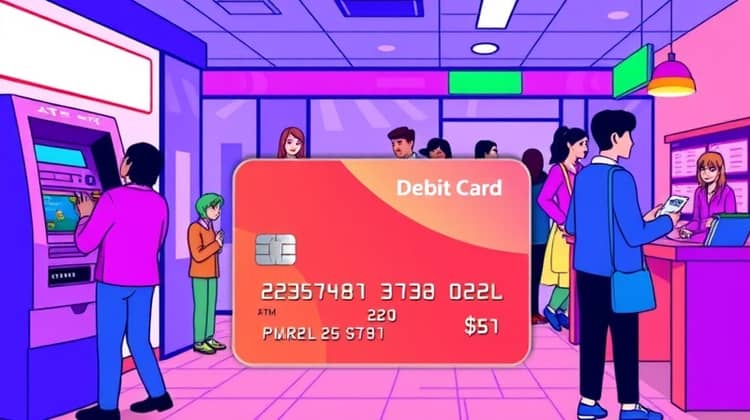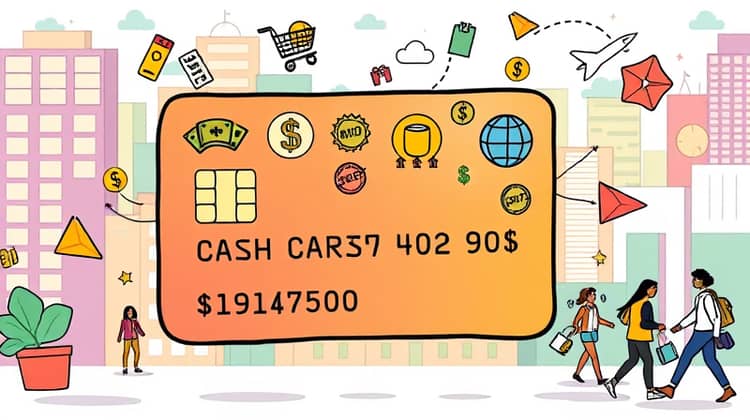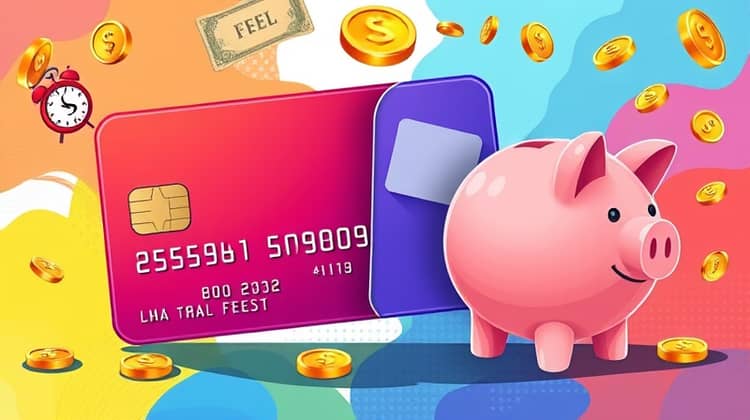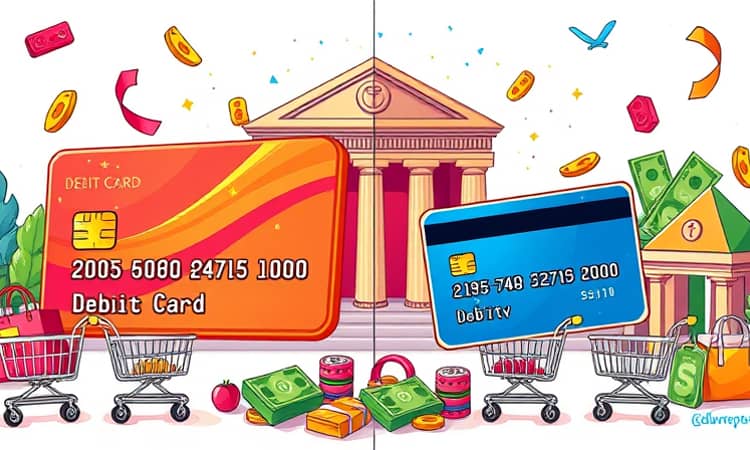In today's world of finance, understanding the differences between credit cards and debit cards is essential for effective money management. Many users often find themselves confused about which option is best suited for their financial habits and needs. This article aims to clarify these distinctions, providing insights that will help you make an informed choice.
Credit cards and debit cards are both popular payment methods accepted widely in various places. They allow users to make transactions easily, but they come with different features, benefits, and risks. By comprehending these differences, you can better navigate your spending habits and ensure optimal use of your resources.
This article will explore what each card entails, their differences, usage guidelines, and more, offering practical knowledge for anyone looking to manage their finances better. Whether you are a student, a young professional, or looking for ways to improve your credit score, understanding these tools is crucial.
What Is a Debit Card?

A debit card is a payment card that allows individuals to access their bank account funds directly. Whenever a purchase is made with a debit card, the equivalent amount is deducted immediately from the linked checking account. This feature ensures that users can only spend what they have, promoting more responsible budgeting.
Debit cards are typically issued by banks or credit unions and are often associated with one’s current bank account. They may also come with a personal identification number (PIN) for added security during transactions. Unlike credit cards, which allow users to borrow money, debit cards draw directly from available funds, minimizing the risk of accumulating debt.
Additionally, most debit cards can be used for ATM withdrawals, allowing users to access cash when needed. They may also include features such as fraud protection and cashback rewards, although these benefits are generally not as extensive as those associated with credit cards.
- Linked directly to a bank account
- Offers real-time spending limits
- Usually requires a PIN for transactions
This makes debit cards an excellent choice for individuals wanting to budget effectively without the risk of debt accumulation.
What Is a Credit Card?

A credit card is a financial tool that allows users to borrow money from a credit issuer up to a pre-established limit, enabling them to make purchases even when they do not have sufficient funds available in their bank account. Users are expected to repay the borrowed amount, usually within a grace period, to avoid interest charges.
Unlike debit cards, credit cards offer the advantage of building credit history and improving one's credit score. This can be beneficial for future financial endeavors, such as applying for loans or mortgages. Users can also earn rewards, such as cash back or travel points, for each purchase made with their credit card.
However, credit cards can pose a risk if not used responsibly. Accumulating debt can lead to financial strain, especially if users exceed their repayment capabilities. Therefore, determining the right balance between utilizing credit effectively and maintaining fiscal discipline is crucial.
- Allows borrowing up to a set limit
- Helps build credit history
- Offers rewards and cashback opportunities
Understanding how credit cards work and the potential consequences of misuse is vital for responsible financial management.
Debit Cards vs. Credit Cards

The primary distinction between debit cards and credit cards lies in how funds are accessed and utilized. Debit cards draw money directly from your checking account, allowing immediate access to funds already owned, while credit cards rely on borrowed money that must be repaid later. This key difference is what influences user spending habits and overall financial health.
Another notable difference is the impact on credit scores. Using a debit card does not affect your credit history because it does not involve borrowing money. In contrast, responsible use of a credit card—such as paying bills on time and maintaining low credit utilization—can positively impact your credit score. This advantage can lead to better interest rates on future loans and credit options.
Understanding these differences can help individuals align their payment methods with their overall financial objectives. For instance, those looking to build credit may lean towards credit cards, while those focused on budgeting and avoiding debt may prefer debit cards.
Key Differences Between Debit and Credit Cards

Usage

Understanding the appropriate contexts for using debit and credit cards can significantly impact your financial management. Debit cards are generally recommended for daily expenditures, such as grocery shopping or small purchases, because they prevent overspending by spending only existing funds.
- Ideal for managing everyday expenses
- Best suited for budgeting purposes
- Less likely to incur debt
Balance Recognition

With debit cards, users can immediately recognize their available balance since purchases deduct funds directly from their checking accounts.
- Provides real-time balance updates
- Promotes responsible spending
- No borrowing implications
Accountability

Debit cards promote a higher level of accountability as they limit spending to available funds in your bank account, reducing impulsive buying behavior.
- Allows for simpler budgeting
- Minimizes the chance of accumulating debt
- Encourages financial responsibility
Risk Management

Using debit cards can effectively minimize financial risks since they prevent borrowing and limit the possibility of accumulating high-interest debt. However, users must still be vigilant about potential fraud and unauthorized transactions. It's essential to monitor accounts regularly to catch any discrepancies early.
- Limits spending to available funds
- Reduces risk of debt accumulation
- Requires vigilance against fraud
Credit Score

Credit cards play a pivotal role in building and maintaining your credit score. Regular use of a credit card provides data points for credit bureaus, which can enhance your credit profile as long as payments are made on time.
- Contributes to credit history
- Benefits from timely payments
- Potentially lowers borrowing costs over time
Maintaining a good credit score is vital for obtaining various financial products, such as loans or mortgages, and can have long-term effects on your financial health.
Debt

Credit cards inherently involve the risk of debt, especially if balances are not paid off in full each month. Unpaid balances accrue interest, leading to a cycle of debt that can be difficult to manage.
- Encourages responsible borrowing
- Potential for high-interest charges
- Needs careful financial planning
Fees

While both debit and credit cards can incur fees, credit cards are often associated with annual fees, late payment charges, and interest fees on unpaid balances. Debit cards, on the other hand, generally attract fewer fees, though some banks may charge monthly maintenance fees or ATM withdrawal fees.
- Credit cards often have annual fees
- Late payment fees may apply
- Debit cards usually have fewer fees
Understanding the fee structure associated with each card type can help users identify the most cost-effective options for their needs.
Interest charges

Credit cards typically come with high-interest rates for any outstanding balance, creating the risk of accumulating debt if not managed properly. Conversely, debit cards do not carry interest charges, as they only allow spending of what one has in their account.
- High-interest rates on unpaid balances
- Grace periods may apply
- No interest with debit cards
Rewards

Many credit cards offer rewards programs, providing cash back, travel points, or bonuses for every purchase made. These incentive programs serve as benefits for responsible credit card use, making them attractive to users.
- Cashback opportunities
- Travel rewards
- Bonus offers for sign-ups
Protections

Credit cards often provide greater fraud protection compared to debit cards. Users are typically less liable for unauthorized transactions if reported promptly. However, debit cards may have limited protections, especially if funds were accessed before being reported.
- Credit cards offer better fraud protection
- Limited protection with debit cards
- Prompt reporting is essential
Which Should You Use?

Deciding between using a debit card or a credit card depends on personal financial goals and habits. If you're focused on budgeting and managing your spending, sticking with a debit card might be the better option. It fosters discipline since you're spending only what you possess, which is crucial for effective financial management.
On the other hand, if you want to build your credit score or plan for larger purchases, a credit card could serve you well. It's essential to use it judiciously, ensuring that balances are paid on time to avoid interest charges and debt accumulation.
- Use a debit card for everyday expenses
- Consider a credit card for larger purchases
- Evaluate your financial goals
Conclusion

In conclusion, understanding the distinctions between credit cards and debit cards is essential for effective financial management. Each card has its benefits and drawbacks depending on individual circumstances and financial goals.
Debit cards are ideal for those who prefer straightforward spending, while credit cards offer opportunities for building credit and earning rewards. It's vital to evaluate personal needs and make informed decisions regarding financial tools to align with one's lifestyle.
Ultimately, responsible navigation of both card types can significantly enhance your financial health, so choose wisely and be mindful of your spending habits.














